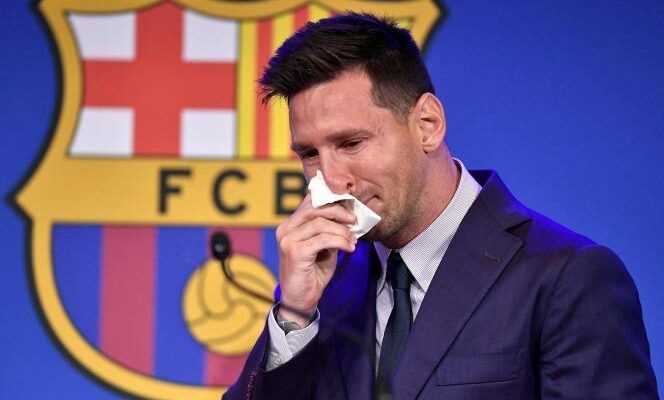In modern football, the transfer market sometimes looks like the court of miracles, and gives fans the right to “dream bigger”. With the possible signing of Lionel Messi, the Qatari PSG staff would prove that it takes particular care to honor the club’s slogan. After Neymar and Kylian Mbappé in 2017, Paris would strike even harder with the arrival of the Argentinian, considered by some to be the greatest footballer in history.
Many observers, however, imagined that at 34, the native of Rosario would remain the man of only one club, FC Barcelona. The person concerned, moreover, assured him himself: “My plan is this: play my whole life at Barcelona. I will only leave when I no longer consider myself good enough or when the club no longer wants me ”, he declared, in 2011, to the German daily Bild. Barça management ended the loyalty pact started a little over twenty years earlier on August 5.
Early genius
Messi was barely 13 when he crossed the Atlantic with his father, Jorge, to meet the Catalan leaders. And it is on a piece of tablecloth, in a tennis club located on the heights of Barcelona, that he signed his first contract, December 14, 2000. Integrated into the youth teams in 2001, the Argentinian was quickly outclassed. . So much so that he was aligned with the first team in November 2003, at only 16 years old, during a friendly match against Porto.
He took his first steps in competition in October 2004, and then became the youngest player to wear the Catalan colors, since the Spaniard Paulino Alcantara, in 1912. For his first season, however, the young prospect played little. But he scored his first goal on 1er May 2005, on a pass from Ronaldinho, the Brazilian – and world – star of the time. A symbolic action that begins the handover between the two geniuses.
From the following season, the Argentinian is much more often aligned on the field (25 matches), even if he has to deal with injuries, which deprive him of the victorious end of the campaign in the Champions League.
Among the greatest of all time
The “Messi era” at Barça really begins in 2008-2009, under the orders of the Spanish coach Pep Guardiola. Ronaldinho and Portuguese Deco, two of the club’s flagship players, are leaving Catalonia. “La Pulga” takes on the role of technical leader.
His goal in the Champions League final against Manchester United allows him to win his second Big Ears Cup (he will win four in total), before a decade of 2010 which will be one of disproportion: he wins seven championships, six Cups of the King and two new Champions Leagues (2011 and 2015), not to mention a 2012 completed with 91 goals, breaking the record of the German Gerd Müller, in 1975.
Unrepeatable ? https://t.co/xpWRDlHyCq
His association with the two Spanish midfielders Xavi Hernandez and Andrés Iniesta will remain one of the most successful of the modern era, carrying a playing identity that has reigned over the Old Contains for several years.
The departure of the two metronomes, respectively in 2015 and 2018, will mark the beginning of the decline of the Catalan club. Messi will nevertheless maintain exceptional standards from a statistical point of view, with five consecutive top scorer titles in the Spanish league.
With the man with 672 goals with Barça, crowned six times Golden Ball, PSG could finally have found the missing link in its quest for the Champions League. Satisfied by national titles, supporters are now claiming the vertigo of European summits.
